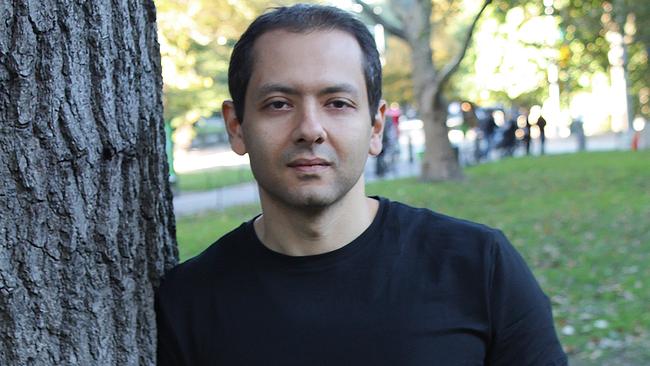Omar El Akkad’s American War: a novel’s US annihilation
In American War, Omar El Akkad constructs a plausible chronicle of the annihilation of the US.

As the present mania for classic dystopian narratives proves, we crave warnings long after we’ve locked calamitous decisions into place. After months of chuckling and shrugging through political upheavals that played out to the soundtrack of late-night laughs, it’s simply not funny any more. This jolt has shot Nineteen Eighty-Four, Brave New World, The Handmaid’s Tale and even Sinclair Lewis’s It Can’t Happen Here back on to bestseller lists.
The timing of American War, the debut speculative novel by Cairo-born Canadian journalist Omar El Akkad, would be apt even if the recent US presidential election had produced a different result. The novel foresees a second US civil war in 2074. El Akkad’s interest lies in an irrevocable ideological rift between factions of citizens, so severe that a single, practical disagreement erupts in a bloody three-way fissure in which the US’s vast destructive resources turn inward. He constructs a plausible, terrifying chronicle of the fracture and subsequent annihilation of the US, not only as a unified nation but also as a power in international affairs.
The reasons for the rupture matter little. Disagreement begets hostility, then killings. These deaths demand retribution. American War is about a country brought down by hubris and uncontrolled advances (deadly drones called Birds have gone rogue, killing at random), but mostly by the longstanding division rubbed raw by politicians, pundits and citizens who dehumanise those of other moral or political ideals.
Aside from acting as a warning (or, more pessimistically, a prophecy), this novel is a thrillingly complex adventure that moves from the American south to Alaska and on to the Middle East and North Africa, which becomes the face of the new world order. Americans are now the refugees desperate for aid and without a means of escape. Their children grow up in a cycle of revenge. At its heart and most movingly, the novel also becomes a coming-of-age narrative about how easily a curious child faced with horror and powerlessness can transform into a weapon intent on obliteration. As we learn at the end of the prologue, “This isn’t a story about war. It’s about ruin.”
It begins with the prohibition of fossil fuels in 2074, a seemingly insignificant law in the face of dwindling supply, but four southern states threaten to secede. Guards kill protesters in a disorienting face-off. A secessionist assassinates the president. Other southern states don’t join the official rebellion but men from their ranks form outlaw groups made up of snipers and suicide bombers.
Climate change has transformed the Mississippi River into a sea that devours swathes of the coast and its cities. Mexico has recovered its former territories from parts of Texas through California. War erupts.
A year into the conflict, a Louisiana family struggles with the new reality of food shortages, infrastructure breakdown and debilitating weather conditions. Benjamin Chestnut refused to join the United Rebels, but he’s killed in a suicide attack while applying for a northern work permit to relocate his family. Martina has no choice but to take their children to a refugee camp under the pretence of being the widow of a southern martyr.
Without schools or jobs, the hordes of displaced people distract themselves with home-brew and try to find use for all those Chinese aid blankets in the unwavering heat. Some steal away to join rebel fighters.
Sarat, the homelier more sensitive Chestnut twin, grows unusually big and tall in the camp. Nearly friendless, she’s easily taken in by a mysterious but well-connected man who wants to teach her about her heritage and help her find purpose. An early scene in which she squeezes precious honey into floor crevices, to find its pure form, provides a metaphor for the novel and for antihero Sarat’s metamorphosis: we find our shape through the pressures that guide and confine us.
Information about the new but oddly recognisable world of this novel arrives fast and thick in a swirl of events and messy political factions that our present selves struggle to align with expectations of the future. While it massages to exciting effect many of dystopian fiction’s traditional tropes, American War offers no answer about how to avoid the kind of damage it unfurls.
This is not the speculative fiction of advanced technologies (though there are glimmers of this) but of the precariousness of our known world and its judgments about the value of specific lives. El Akkad is no moraliser and this novel stands firm outside whatever political stance its readers take. Yet as Sarat explains to those seeking a separate peace, deciding not to take sides is choosing a side.
Jennifer Levasseur is a writer and critic.
American War: A Novel
By Omar El Akkad
Picador, 352pp, $29.99


